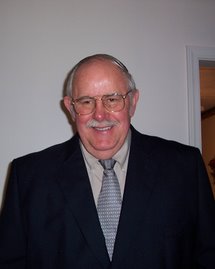
How we need men like the blessed Whitefield today in our wretched day of apostasy! I would like to write about him, but I feel unworthy. Besides, if you are a good reader, one of the greatest biographies of a Christian ever written (IMHO), is the late Arnold Dallimore's two volume set George Whitefield; published by Banner of Truth, and also Crossway. You can find it at Christian booksellers online such as Monergism, ChristianBook.com and even at Amazon.com. If you feel you can't possibly read 1200 plus pages just now, or cannot find a reasonable price on the set, try Dallimore's own condensation of 224 pages also published by Crossway. I think it will whet your appetite for more. As Principal G.A. Adams of Toronto Baptist Seminary said: "This condensation of the author's classic two-volume edition contains 23 fast-moving chapters of highly interesting material. A powerful rendering of a life wholly consecrated to God."
Here are two pleading paragraphs from one of George Whitefield's sermons:
Genesis 5:24, "And Enoch walked with God: and he was not; for God took him."
"And now, what shall I, or, indeed, what can I well say more to excite you, even you that are yet strangers to Christ, to come and walk with God? If you love honor, pleasure, and a crown of glory, come, seek it where alone it can be found. Come, put ye on the Lord Jesus. Come, haste ye away and walk with God, and make no longer provision for the flesh, to fulfill the lust thereof. Stop, stop, O sinner! Turn ye, turn ye, O ye unconverted men, for the end of that way you are now walking in, however right it may seem in your blinded eyes, will be death, even eternal destruction both of body and soul. Make no longer tarrying, I say: at your peril I charge you, step not one step further on in your present walk. For how knowest thou, O man, but the next step thou takest may be into hell? Death may seize thee, judgment find thee, and then the great gulf will be fixed between thee and endless glory for ever and ever. O think of these things, all ye that are unwilling to walk with God. Lay them to heart. Show yourselves men, and in the strength of Jesus say, Farewell, lust of the flesh, I will no more walk with thee! Farewell, lust of the eye, and pride of life! Farewell, carnal acquaintance and enemies of the cross, I will no more walk and be intimate with you! Welcome Jesus, welcome thy word, welcome thy ordinances, welcome thy Spirit, welcome thy people, I will henceforth walk with you. O that there may be in you such a mind! God will set his almighty fiat to it, and seal it with the broad seal of heaven, even the signet of his holy Spirit. Yes, he will, though you have been walking with, and following after, the devices and desires of your desperately wicked hearts ever since you have been born. 'I, the high and lofty One', says the great Jehovah, 'that inhabiteth eternity, will dwell with the humble and contrite heart, even with the man that trembleth at my word.' The blood, even the precious blood of Jesus Christ, if you come to the Father in and through him, shall cleanse you from all sin.
But the text leads me to speak to you that are saints as well as to you that are open and unconverted sinners. I need not tell you, that walking with God is not honorable, but pleasant and profitable also; for ye know it by happy experience, and will find it more and more so every day. Only give me leave to stir up your pure minds by way of remembrance, and to beseech you by the mercies of God in Christ Jesus, to take heed to yourselves, and walk closer with your God than you have in days past: for the nearer you walk with God, the more you will enjoy of him whose presence is life, and be the better prepared for being placed at his right hand, where are pleasures for evermore. O do not follow Jesus afar off! O be not so formal, so dead and stupid in your attendance on holy ordinances! Do not so shamefully forsake the assembling yourselves together, or be so niggardly or indifferent about the things of God. Remember what Jesus says of the church of Laodicea, 'Because thou art neither hot nor cold, I will spew thee out of my mouth'. Think of the love of Jesus, and let that love constrain you to keep near unto him; and though you die for him, do not deny him, do not keep at a distance from him in any wise."
(from Walking With God.) This, and other Whitefield sermons can be found online, in their entirety, at: http://www.reformed.org/documents/index.html?mainframe=http://www.reformed.org/documents/Whitefield.html




